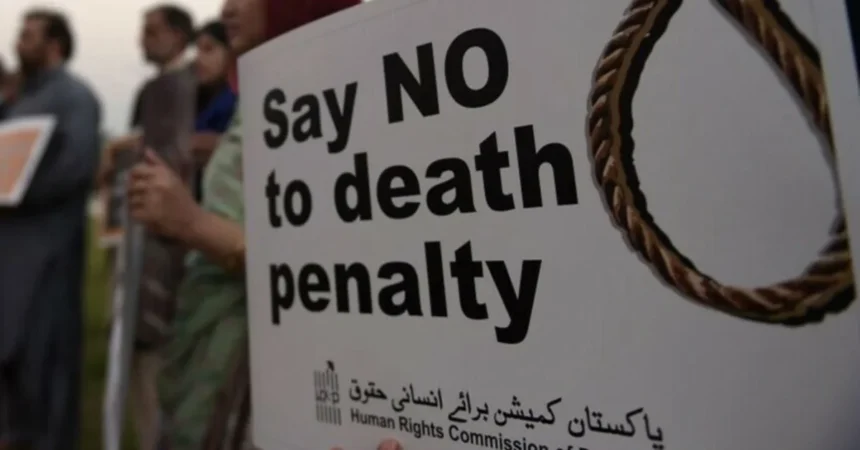The Reality of Death Row in Pakistan: An Overview
As of recent reports, Pakistan has a staggering number of 6,161 prisoners currently on death row. This alarming statistic sheds light on the broader issues surrounding capital punishment in the country, raising significant questions about the legal system, human rights, and the ethical implications of the death penalty. This article aims to explore the situation of these prisoners, the judicial processes involved, and the societal attitudes towards capital punishment in Pakistan.
The death penalty has been a contentious issue worldwide, and Pakistan is no exception. The country reinstated the death penalty in 2014 after a moratorium, citing rising terrorism and the need for security. Since then, there has been a significant increase in the number of executions carried out, leading to international scrutiny and debate over the efficacy and morality of capital punishment.
Understanding Capital Punishment in Pakistan
Capital punishment in Pakistan is governed by a mix of Islamic law and civil law, resulting in a complex legal framework. The country’s legal system allows for the death penalty for a variety of offenses, including murder, terrorism, and drug trafficking. While proponents argue that it serves as a deterrent against serious crimes, opponents highlight the flaws in the judicial process, including the risk of wrongful convictions.
The legal process for death penalty cases involves several stages, including trial, sentencing, and appeals. However, numerous reports have indicated that the judicial system in Pakistan is fraught with delays, lack of adequate representation, and corruption. As a result, many prisoners on death row face protracted legal battles, often languishing for years without resolution.
Prison Conditions and Human Rights Concerns
The conditions faced by death row inmates in Pakistan are a matter of grave concern. Many prisons in the country are overcrowded and lack basic facilities, leading to dire living conditions for inmates. Reports indicate that prisoners often face inadequate access to medical care, poor sanitation, and limited opportunities for rehabilitation. The overcrowding exacerbates the already poor conditions, leading to further human rights violations.
Furthermore, human rights organizations have raised alarms over the treatment of prisoners on death row. Allegations of torture, ill-treatment, and inhumane conditions are prevalent, leading to calls for reform in the prison system. The psychological toll of awaiting execution can also be immense, with many prisoners suffering from severe mental health issues as they await their fate. The uncertainty surrounding their future creates a sense of despair that can lead to long-term psychological damage.
The Legal and Ethical Implications of the Death Penalty
The ethical implications of capital punishment have been widely debated, and Pakistan’s situation is no different. Supporters argue that the death penalty is a necessary tool for justice and deterrence, particularly in a country facing severe security challenges. They believe that the death penalty serves as a means to uphold law and order, acting as a deterrent to potential criminals.
Conversely, opponents contend that capital punishment is inherently flawed, as it does not guarantee justice. The risk of executing innocent individuals, combined with the potential for biased legal proceedings, raises serious moral questions. Human rights advocates argue that the death penalty is an irreversible punishment that should be abolished in favor of life imprisonment without parole.
The Impact on Society and Victims’ Families
The presence of 6,161 prisoners on death row has profound implications for Pakistani society. The death penalty is often viewed as a response to rising crime rates and security concerns. However, the focus on punitive measures rather than addressing root causes of crime—such as poverty, lack of education, and social inequality—has led to criticism from various sectors.
For families of victims, the issue is complex. While some may feel that justice is served through the execution of the perpetrator, others argue that capital punishment does not bring true closure. The lengthy legal processes and delays can prolong the suffering of victims’ families, leading to frustration and despair. The pursuit of justice can sometimes feel more like a punishment, with families caught in a never-ending cycle of hearings and appeals.
Moreover, the families of death row inmates also bear the brunt of the consequences. Many families face stigma and social ostracism due to their loved ones’ crimes, leading to further marginalization. The emotional and financial burdens placed on these families can be overwhelming, as they navigate the complexities of the legal system while coping with the impending fate of their loved ones.
Calls for Reform and Abolition
Given the alarming statistics surrounding death row prisoners, there have been increasing calls for reform within Pakistan’s justice system. Human rights organizations, activists, and legal experts have advocated for a reevaluation of capital punishment policies. These advocates argue for a shift towards rehabilitation rather than retribution, emphasizing the need for comprehensive criminal justice reform.
Several countries have successfully abolished the death penalty, demonstrating that it is possible to address crime through alternative measures. These reforms often focus on improving legal representation, enhancing the efficiency of the judicial system, and providing better conditions for inmates. Advocates for reform in Pakistan argue that similar changes could lead to a more just and humane society.
International organizations, including the United Nations, have also urged Pakistan to reconsider its stance on capital punishment. Calls for a moratorium on executions and a review of death penalty cases have been echoed by various human rights groups, emphasizing the need for accountability and transparency in the justice system.
The Role of Public Awareness and Advocacy
Public awareness plays a crucial role in shaping attitudes towards capital punishment. Advocacy campaigns aimed at educating citizens about the flaws in the death penalty system can help shift public opinion. Documentaries, public discussions, and social media campaigns can bring attention to the plight of those on death row and the broader human rights implications.
Grassroots organizations and activists are crucial in this regard, as they often work tirelessly to highlight injustices and advocate for change. Their efforts can lead to greater public engagement and a reevaluation of societal norms surrounding capital punishment.
International Perspectives and Comparisons
When considering Pakistan’s approach to capital punishment, it is essential to look at international perspectives and practices. Countries such as Canada, the UK, and many European nations have abolished the death penalty, citing human rights concerns and the risk of wrongful executions. These countries often focus on rehabilitation and restorative justice as alternatives to capital punishment.
Pakistan’s continued reliance on capital punishment puts it at odds with many nations that have moved toward abolition. The international community’s increasing condemnation of the death penalty highlights the growing recognition that it does not effectively deter crime and often exacerbates social issues.
The Path Forward: Balancing Justice and Human Rights
As Pakistan grapples with its approach to justice, the need for comprehensive reforms has never been more critical. The intersection of legal, ethical, and human rights considerations paints a complex picture of capital punishment in the country. While the future of capital punishment in Pakistan remains uncertain, the ongoing dialogue surrounding the death penalty continues to evolve.
Addressing the plight of death row prisoners is essential for advancing human rights and justice in the country. By focusing on rehabilitation rather than retribution, Pakistan can take significant strides towards creating a more humane and just society. The path forward will require collaboration among government officials, human rights advocates, and the general public to foster a system that prioritizes justice and human dignity.
The Psychological Impact of Death Row
One of the often-overlooked aspects of death row is the psychological toll it takes on inmates. Being on death row can lead to severe mental health issues, including depression, anxiety, and post-traumatic stress disorder. The uncertainty of their fate creates a constant state of fear and despair, which can exacerbate existing mental health problems.
Access to mental health services for prisoners is limited, and the conditions in which they are kept often worsen their mental health. Many inmates report feelings of isolation, hopelessness, and despair, making their time on death row particularly harrowing. Addressing mental health needs within the prison system is critical for ensuring humane treatment and fostering rehabilitation.
The Role of Religion in Capital Punishment
Religion plays a significant role in shaping attitudes toward capital punishment in Pakistan. Islamic law prescribes the death penalty for certain offenses, and many argue that its implementation is rooted in religious doctrine. However, interpretations of Islamic law can vary, and there are numerous scholars and activists who advocate for a more humane approach to justice that prioritizes forgiveness and rehabilitation over retribution.
Discussions around capital punishment often invoke religious sentiments, leading to polarized opinions within society. Engaging religious leaders in conversations about the ethical implications of the death penalty could facilitate a broader dialogue about justice, mercy, and the potential for reform.
The Economic Cost of Death Row
The financial implications of maintaining a death row system are significant. The cost of lengthy legal processes, incarceration, and executions places a considerable burden on the state. Taxpayer money is allocated to fund legal defenses, court proceedings, and prison maintenance, often with little return on investment in terms of crime reduction.
Investing in alternative measures, such as crime prevention programs and rehabilitation initiatives, could yield more significant benefits for society. By redirecting funds away from capital punishment, the government can focus on addressing the root causes of crime and improving the overall safety and welfare of its citizens.
The situation of the 6,161 prisoners on death row in Pakistan presents a multifaceted issue that requires urgent attention. The intersection of legal, ethical, and human rights considerations highlights the complexities surrounding capital punishment in the country. Advocating for reform and exploring alternative justice measures are essential steps toward fostering a more equitable and humane society. As Pakistan continues to navigate these challenges, the need for comprehensive reforms remains paramount.
#DeathRowInPakistan #CapitalPunishment #HumanRights #JusticeReform #PakistaniPrisoners #LegalSystem #Pakistan #EndDeathPenalty #PrisonConditions #AbolishDeathPenalty







